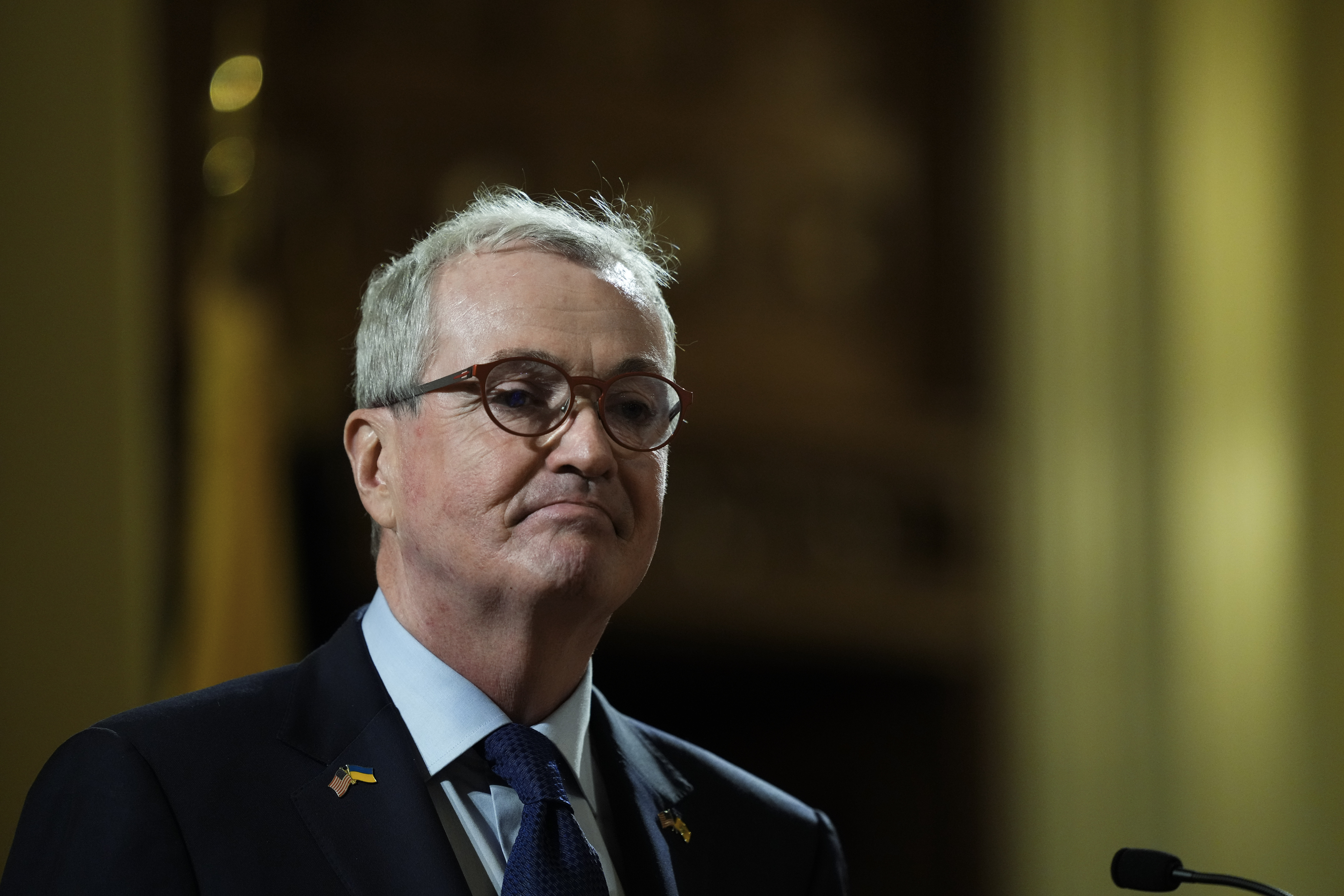
New Jersey Gov. Phil Murphy is biting a political bullet to raise business taxes on the state’s largest companies in order to find hundreds of millions of dollars a year to fund its beleaguered mass transit system.
It’s not the only tax increase in the $55.9 billion budget Murphy outlined Tuesday, but it is by far the largest and likely most politically divisive. And his plans to raise more revenue break his “pledge to not raise taxes” Murphy made when he won a second and final term in 2021.
But his administration said economic circumstances have changed and that his proposals balance responsible budgeting with his focus on affordability. A senior administration official noted, for example, that the new fees and taxes were “carefully tailored” and not broad-based.
The new tax, called the Corporate Transit Fee, will face opposition from elements of the business community and could also get picked apart or divided up by lawmakers who want to fund their own pet projects. And it could be used against Murphy’s wife, first lady Tammy Murphy, in her Senate primary campaign that’s tried to focus on affordability but which has gotten off to a difficult start.
The new 2.5 percent tax on some 600 businesses making over $10 million a year in profit will be one of the most significant moves by the second-term Democrat and perhaps one of his last major accomplishments before he leaves office in early 2026.
Yet, if some semblance of the transit tax makes it into the final budget, which must be approved by July 1, Murphy will have plugged New Jersey Transit’s looming budget gap and given the agency its first ever source of dependable state funding. His proposal to create a stable funding source has been a longtime goal of transit advocates, but the governor, to their frustration, had seemed uninterested in tackling the problems. The budget proposal is a surprising reversal.
The transit fee is, by far, the biggest news in Murphy’s proposed budget, which includes a $6.1 billion surplus, a figure that includes the transit fee money collected this year. That’s down by about $2 billion from the budget Murphy signed in June and, by percentage of the budget, is less than what’s legally required for the state to fund its StayNJ senior property tax relief program in 2026 — a key priority of Assembly Speaker Craig Coughlin.
That program requires the state to have at least a 12 percent surplus. Murphy’s proposed surplus represents about 11 percent, but state Treasurer Elizabeth Muoio told reporters on Monday that the administration will work with the Legislature to reach the program's requirements.
The administration appeared to brush aside major concerns about revenue and said forecasts generally expect a “soft landing.”
The transit fee is only one of several new tax or fee increases. The governor previously promised not to raise taxes in his second term. His administration justifies the reversal as a result of changing financial conditions.
Other fee increases are far smaller — like undoing the sales tax break for electric vehicles, which will bring in about $70 million, as well as a new $1 tax on trucks visiting warehouses, which would bring in about $10 million, according to administration officials.
The budget proposal includes $200 million for StayNJ, which aims to cut property taxes in half for those 65 and older with incomes of up to $500,000 for a maximum $6,500 benefit. The state is gradually ramping up funding to implement the first year of the program, which will be the start of 2026 at the earliest. There is also $2.27 billion set aside for the state’s ANCHOR property tax rebate program for homeowners and renters.
The administration continues to make the point that a lot of money remains tied up in sins of the past. This year’s $7.1 billion pension payment, for instance, would have been just $1.1 billion had previous administrations paid their share.
“During tough times, we didn’t cancel a tunnel to plug a hole in our finances,” the governor said, referring to former Gov. Chris Christie’s decision to cancel a major train tunnel to save money. “No, we rolled up our sleeves and started cleaning up the fiscal mess in Trenton. We made responsible choices while also staying true to our values.”
The budget also fully funds the school aid formula with $11.66 billion — making Murphy’s the first administration to do so.
“When we entered office, we knew that restoring that funding would not happen overnight,” he said. It would be a marathon, not a sprint. In fact, a seven-year marathon to fully invest in the success of every student, in every school district.”
School districts are about to be notified about how much aid they will receive. According to the state treasurer, 423 districts will get more, 140 districts will get less and 15 districts will get just the same.
Daniel Han contributed to this report.

 10 months ago
10 months ago








 English (US)
English (US)